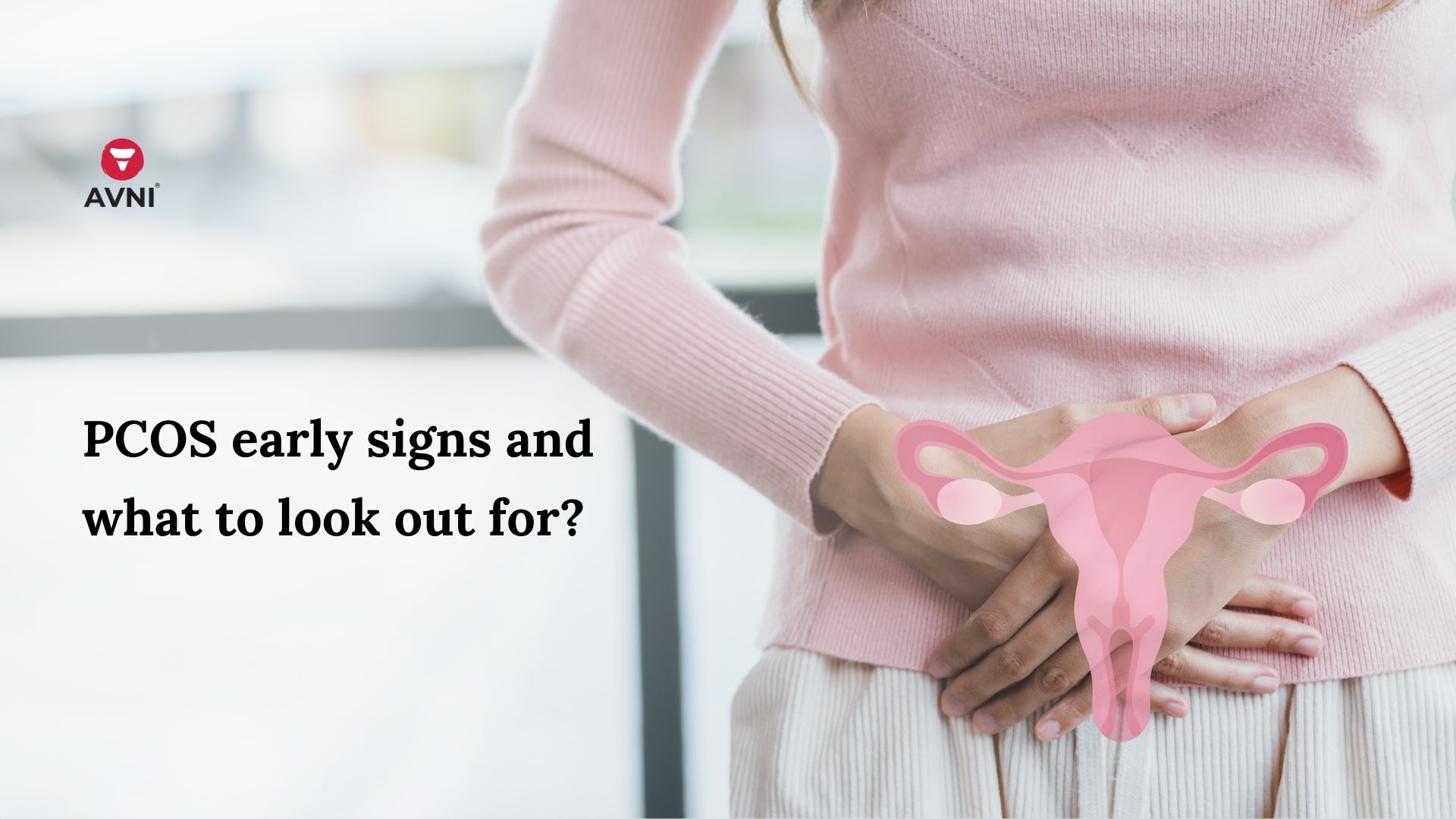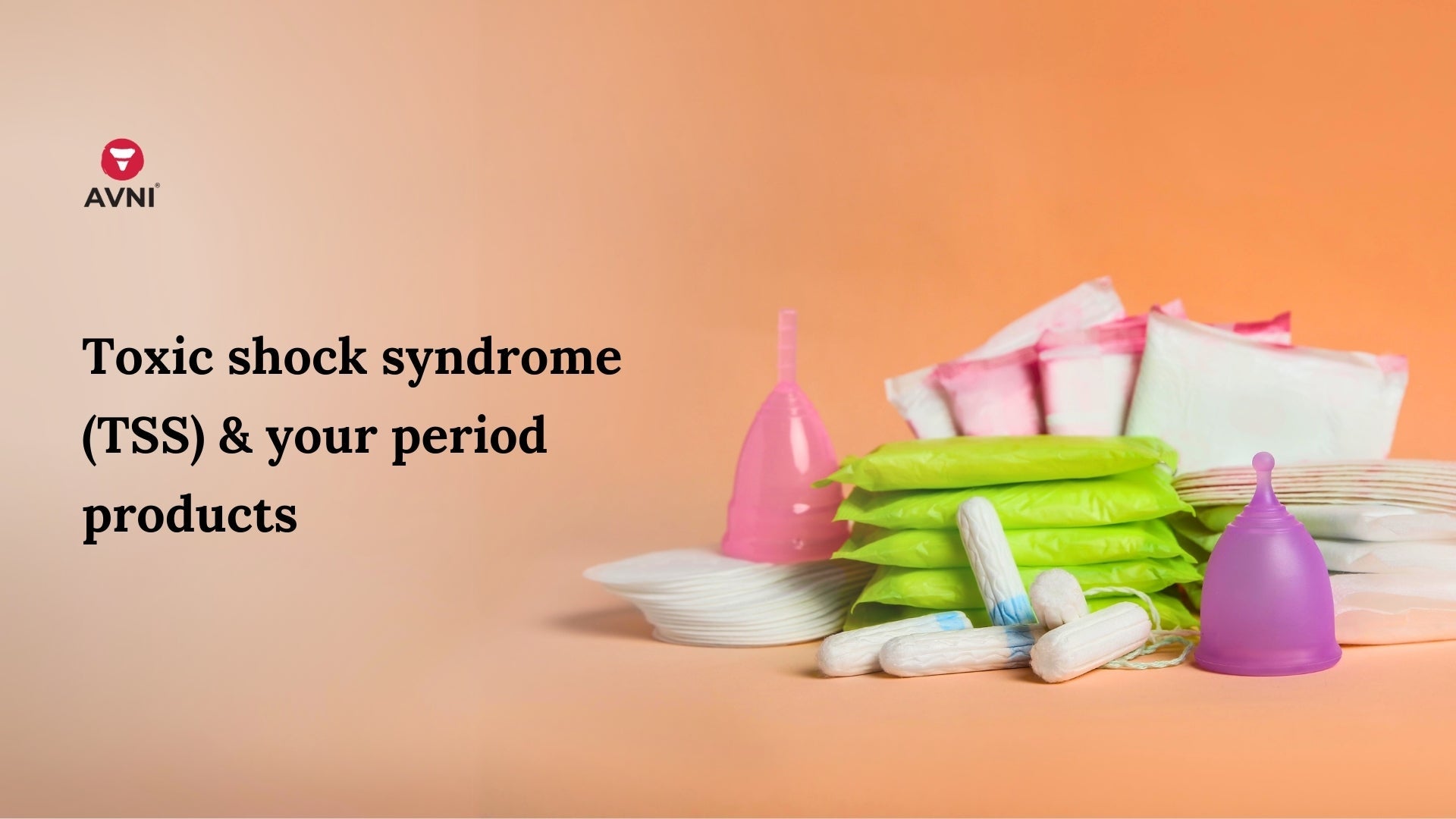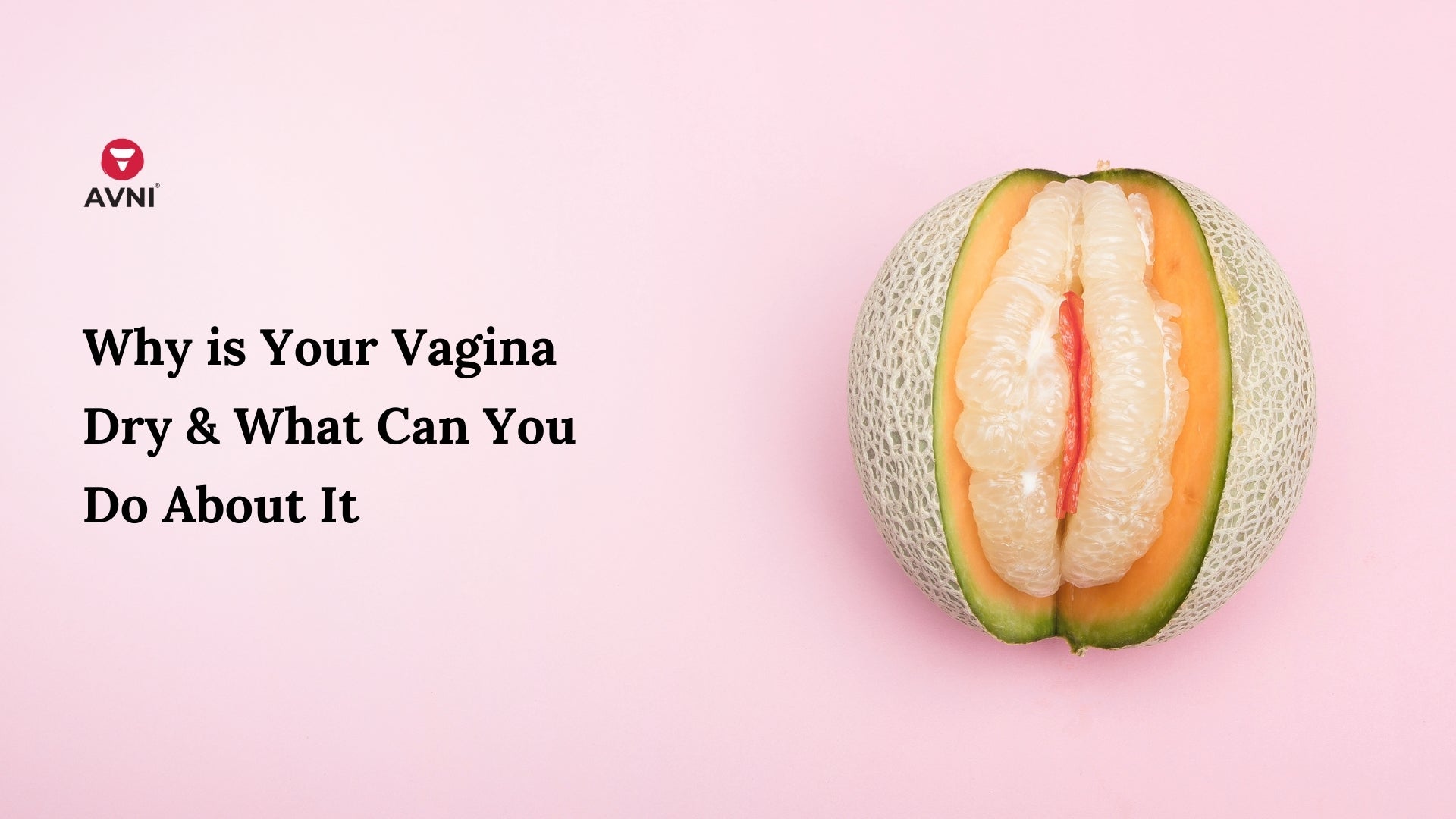
PCOS early signs and what to look out for?
Are you concerned that you may have PCOS or PCOD? Are you scouring the internet to find early signs of the disorders? Or are you simply worried about the effects of PCOS on your health?
In this article, we’ll be answering all these critical questions, along with other essential ones that may arise in due course of time.
To begin with, let us learn what PCOS is, how it differs from PCOD, and other fundamental details. Once you have this contextual information, learning about earlier signs, symptoms, and additional information becomes easier.

What is PCOS, and how is it different from PCOD?
Right off the bat, PCOS carries severities higher than PCOD. Many women with PCOD can conceive in their late 30s and give birth to healthy children with the right diet, lifestyle change, and medication but it’s harder for women with PCOS.
They are often caused due to the ‘male hormones’ androgens that interfere with the natural ovulation process where little fluid filled sacs take home in the ovaries and lead to irregular periods. However, it does not just end with irregular periods but leads to acne, and excessive facial hair to name a few. This also interefers with pregancy, a healthy body cycle and hormonal imbalance which wreaks the overall well-being of the person suffering from PCOS.
Here are some differences between PCOD & PCOS that women must be aware of:

Early signs & symptoms of PCOS
Early signs of PCOS sometimes begin to show during puberty but become prominent in women in their early to mid-twenties. The first signs of PCOS generally are:
- Irregular, delayed, or absent menstrual cycles - caused due to abnormal interaction of the egg.
- Hirsutism - excessive hair growth on the face, legs, back, and arms.
- Oily Skin & Acne.
- Unexpected weight gain.
- Swollen or bloated stomach.
- Male-pattern baldness.
- Loss or thinning of the hair - due to an increase in androgen (male hormone) levels in the system.
- Frequent headaches - due to hormones raging in your system.
- Difficulty getting pregnant - due to irregular ovulation or failure to ovulate.
Various other ailments, hormonal or otherwise, show similar signs as PCOS/PCOD. Do not conclude that you may or may not have either disorder before consulting your family doctor or an endocrinologist.

Secondary signs & symptoms of PCOS
Secondary or worse symptoms of PCOS may seem similar to early signs but have palpable differences:
- Darkening of skin or dark patches appearing under the breasts, groin area, and neck.
- Fatigue.
- Infertility - can be countered with medication in many cases.
- Heavy menstrual bleeding - the uterine lining remains intact for longer periods resulting in heavier flow than usual.
- High blood pressure - in a worse case, may cause a stroke.
- High blood sugar.
- High cholesterol.
- Diabetes.
- Heart disease.
- Sleep apnea - interrupts sleep by pausing breathing during the night.
- Endometrial cancer - cancer of the uterine lining.
- Depression

As PCOS is a hormonal disorder, it may not only cause physical ailments but mental as well. As a result, endocrinologists often prescribe therapy and counseling to maintain morale alongside other medication.
High blood sugar, blood pressure, and cholesterol occur because PCOS affects metabolism, which means 80% of women who are overweight and have PCOS are at risk.
You may not show all or most of the said PCOS symptoms but it is recommended to see a doctor when you notice a few of these signs, regardless of your age.
The primary and secondary signs & symptoms of PCOS may seem detrimental, dangerous, and demoralizing, but medical sciences have advanced enough to counter its effects. Both, teenagers and women on the verge of menopause can effectively make the most of the treatments to fight PCOS.
What causes PCOS and PCOD?
While an increase in the male hormones called androgens is medically known to cause PCOS or PCOD, the actual reason behind this is still unknown. The following reasons may cause or exacerbate the chances of contracting the disorders.
1- Genetics: one of the most common causes a woman is diagnosed with PCOS is from her genetics. If your mother or a close relative has or has PCOS, there is a good chance you may inherit it. Although unproven, it is studied that 20 to 40 percent of women diagnosed with PCOS also have an affected mother or sister.
2- Insulin resistance: When the female body produces insulin in excess, it also produces androgen, making it hard for the female body to ovulate. The same increase in insulin production may cause diabetes in women diagnosed with PCOS.
3- Inflammation or swelling: A recent study showed that a phenomenon unrelated to obesity, glucose, can trigger oxidative stress and an inflammatory reaction from mononuclear cells. This means that low-grade inflammation may increase the chances of PCOS in women.
Baffling the scientific community even in 2022, the causes of PCOS & PCOD are elusive. But one can find solace in the statistics found after exhaustive studies to get a clearer picture.
Statistics:
- There is a 50% chance of inheriting PCOD from a family member.
- 70% of women who have PCOD are resistant to insulin.
- 10% of the women population in the world have PCOD.
- PCOS is found in 6 to 12% of women of reproductive age.
- Hirsutism affects 70% of women with PCOS.
Now that we understand the early signs and probable causes of PCOS & PCOD let us learn how it’s diagnosed and treated.
How is PCOS diagnosed?
There is no specific medical method to diagnose PCOS or PCOD, but doctors and specialists use various ways to find the presence of the ailment. To start with, doctors ask a series of routine questions to eliminate other similar disorders, and some of the questions are:
- Have you put on weight in the last few months or years?
- Have any of your family members been diagnosed with PCOD or PCOS?
- Have you noticed irregular menstrual cycles, or has there been any noticeable change in your period?
- Do you feel fatigued lately?
- Are you having trouble sleeping?
- Have you been feeling sad or depressed lately?
Other than these questions, doctors notice the obvious changes in (on) your body and undertake the following methods of examination.
- Notice if you have acne breaking out.
- Check for hair growth on your face, back, and other areas.
- Check if you have balding or thinning of hair.
- Take a blood sample to measure your hormone levels which reveal the excessive androgens present in your system.
- Test your blood sample for cholesterol, glucose tolerance, and triglyceride levels.
- Specialists such as endocrinologists, OBGYNs, and reproductive endocrinologists perform a manual pelvic exam to inspect if there are cysts, growths, or other abnormalities.
- Lastly, a pelvic ultrasound is performed to visually confirm or deny growth or any cysts and other activities.
What are the available treatments for PCOS?
Once the doctor confirms PCOS or PCOD, the treatment begins in two parts; medication and lifestyle change. Common problems like obesity, infertility, and hair loss are treated with medication, but the rest is in your hands.
Progestin therapy, birth control pills, letrozole, gonadotropin, metformin, spironolactone, and eflornithine are the most common medications and therapy given to counteract PCOS/PCOD and its effects.
Consuming grains, fruits, eggs, spinach, bananas, almonds, peas, lima beans, cod liver oil, turmeric, cinnamon, maca root, other superfoods, grains, and dietary substances are known to counteract PCOS & PCOD.
At last, a complete change in your lifestyle has proven to work wonders. Sleeping and waking up early, getting 8 hours of deep sleep, meditation, cardio & weight training, yoga, and other regular healthy routines can help tremendously.



Leave a comment
This site is protected by hCaptcha and the hCaptcha Privacy Policy and Terms of Service apply.